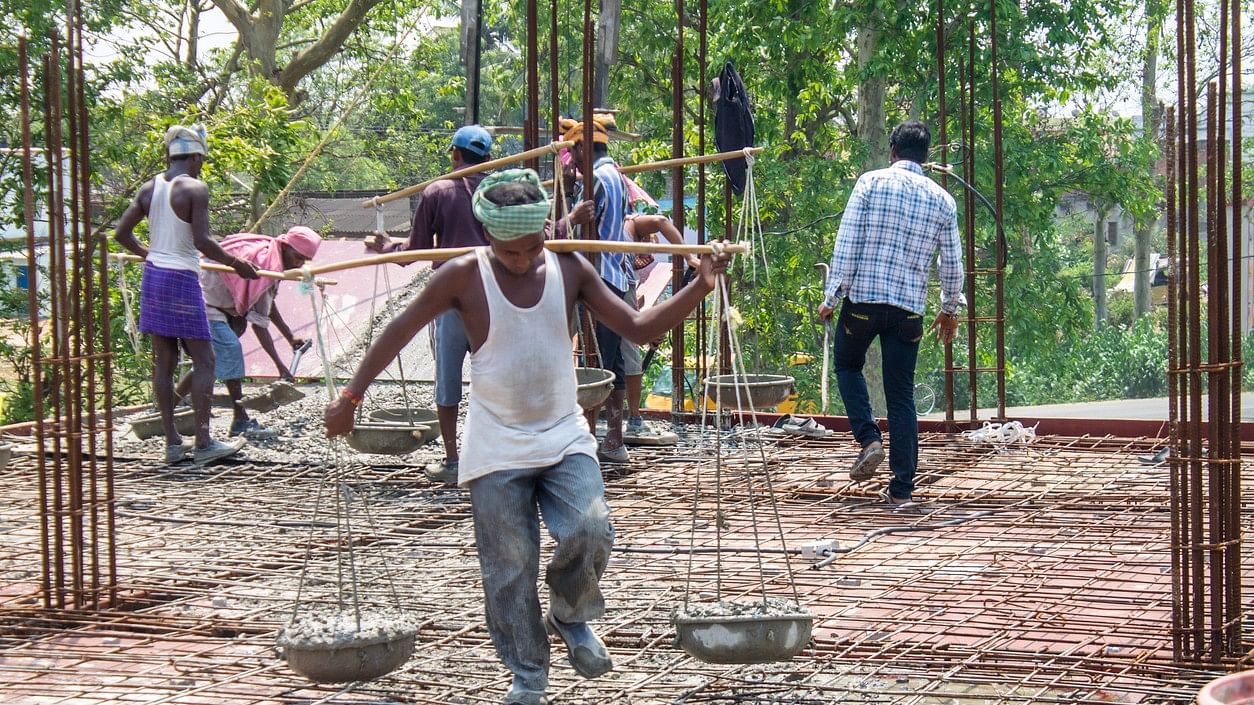
In May 2024, a boiler blast in a chemical factory at the Dombivli MIDC claimed the lives of at least 13 people and fatally injured more than 60 workers and residents in the area.
Credit: iStock photo
In May 2024, a boiler blast in a chemical factory at the Dombivli MIDC claimed the lives of at least 13 people and fatally injured more than 60 workers and residents in the area.
The blast culminated in the arrest of factory owners under charges of homicide not amounting to murder. Investigations are underway to assess if basic safety audits were diligently carried out, and whether safety certificates were duly acquired.
The prompt reaction by the state in this incident unfortunately led to no punitive legal action against the owners. Just three weeks after the blast, the owners were released on bail, with the incident being labelled as an ‘act of God’.
The chemical reaction blast was triggered by a heatwave, indicating gross negligence. A factory using dangerous chemicals did not have any safety systems to mitigate disasters caused by increasing temperatures.
Such an incident operates as a trigger and we were pushed to think about similarly tragic occupational accidents, including blasts, that occur regularly across formal and informal workplaces in the country.
The Directorate General Factory Advice Service & Labour Institutes (DGFASLI)— a state body that collects data around industrial accidents — reports a daily average of three worker deaths and 11 injuries occurring in industries.
DGFASLI data from 3,21,578 factories across India recorded a total of 1,058 ‘dangerous occurrences’ and 988 ‘fatal injuries’ in the year 2020-21. It is pertinent to note that this data is sourced from registered industrial establishments in the country, which are bound by industrial laws to report dangerous and fatal incidents occurring at the workplace.
The two decade-long experience of Aajeevika Bureau, which has been working with workers in informal industrial settings across Rajasthan, Gujarat and Maharashtra, indicates that these establishments fall outside the purview of regulatory frameworks that ensure safety and accountability at the workplace.
We have come across multitudes of workers who are at a high risk of being fatally injured or have met with grievous occupational accidents. Nevertheless, these cases are 'invisibilised' – seldom looked upon by the media and collectively neglected by the State.
This deficit in information related to industrial accidents prompted us to design a data collection tool that is grounded and crowd-sourced from worker communities, trade unions, hospitals and other stakeholders.
This tool—piloted in the industrial clusters where Aajeevika Bureau’s work is located—captures data ranging from minor cuts and bruises to major accidents that result in serious injuries and deaths at the workplace.
Over the past one year, the tool collected information relating to 670 cases—157 of them fatal—from industrial clusters in Gujarat (Ahmedabad, Ankleshwar and Surat), Rajasthan (Barmer and Jodhpur) and Maharashtra (Mumbai, Navi Mumbai and Pune), covering 1,273 victims of serious injuries.
Predominant risks recorded include amputations, crush injuries, severe wounds, skin tears and fractures. As much as 85 per cent of these accidents that led to amputations occurred due to machinery malfunction, or because a worker was working on a machine that was inherently risky.
Other major causes include fall of heavy objects, explosions and fires and falling from a height. Metal and steel, construction, automobile, garment and chemical are the major industries where accidents have been recorded.
The cases on our database —whose geographical scope is limited— are only indicative of the extent and nature of accidents that occur across formal and informal work settings. Informal work is precarious and employs close to 90 per cent of the workforce, whose injuries and deaths are virtually absent in the State’s data systems.
This points to the necessity of setting up processes that systematically gather data on industrial accidents even from informal enterprises. Moreover, our experiences in capturing industrial accidents have established the significance of involving workers and their collectives in gathering such data. Such collaborative methods are prominent for bridging the gap in information on workplace accidents.
Only visibility of accidents prompts accountability and action in favour of victims and the injured. IndiaSpend reports that while there were about 14,710 convictions against employers and officials alike between 2018 and 2020, only 14 arrests had been made for non-compliance under the Factories Act, 1948.
Inaction against employers or government officials remains the norm in cases involving workplace accidents, even in formal work settings. A vast majority of informal workers are therefore left in the lurch with no recourse to justice.
The onus of creating visibility around occupational accidents in informal work settings also falls on the media. Only 30 per cent of the cases in our database come from articles in newspapers or other media.
These usually pertain to explosions in chemical units or blasts in firecracker units that record multiple victims, as was the case in Dombivli. This tells us that unless there are harrowing cases claiming the lives of numerous workers, most industrial accidents remain undocumented due to limited media traction.
Systematic invisibilisation and inaction emerging from an informational deficit leads to lacunae in policy and institutional response towards occupational risks and accidents that occur in informal work settings.
The pronounced absence of the State allows employers to operate in a regulatory vacuum with no accountability towards workers. The resultant disregard for basic economic rights as constitutionally guaranteed is an extension of the larger exploitation of the worker under capitalism that is enabled within such systems.
Only an active welfare state that is committed towards the safety and security of workers can ensure unwavering dignity for labourers of the country.
(The writers are researchers at Work Fair and Free)